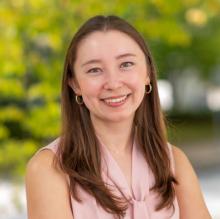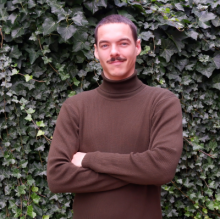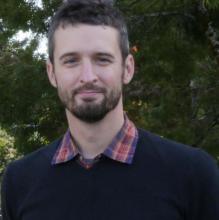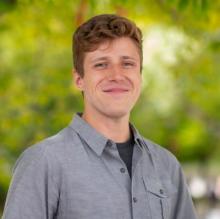Ashli is exploring the role of the arts in securing voice and opportunity for oppressed populations, specifically in post-conflict societies who are facing extreme changes due to unsustainable development. She is working in collaboration with Quechua communities and NGOs in the Peruvian Andes to research how collective intellectual property rights may better protect their intangible cultural heritage in the face of capitalist marketplaces and tourism.
Research Description
My research is in response to years of dialogue with tourists, consumers, indigenous weavers, and NGO workers about discrepancies in marketing Quechua textiles. In the Peruvian Andes, the Quechua textile tradition is one of the most important cultural cornerstones. However, unsustainable forms of tourism and development have rapidly encroached on indigenous Quechua subsistence communities, threatening their most important art form. Over the past decade, I have heard a common dilemma from both conscientious consumers and development workers offering fair-trade market outlets: "But how do we know the difference between an authentic textile and a copy?" Weavers have suggested solving this dilemma through collective certifications of authenticity.
I will work with organizations and weavers to a) propose and develop a collective certification process that is inclusive and community-owned; b) create stronger networks among fair-trade textile outlets of the region, so that travellers can better support artisans directly and fairly; and c) research why prior initiatives and current networks lay dormant, inactive, and unused, and offer solutions to improve their visibility and viability.
Parallel work is also being conducted in Nepal, to explore opportunities for adaptations and synergies across an international platform with communities facing similar challenges.
What does being a Public Scholar mean to you?
After attending Public Scholar Initiative (PSI) events, I felt like I had finally found my academic family - scholars who truly connect with communities both locally and globally, making positive impact through innovative research and tangible outputs. These scholars believe in asking first, in listening before speaking, in working with rather than for or above community members. The injustices I have witnessed will continue to escalate until a shift transpires, and I believe as a Public Scholar I can be a catalyst needed for this shift.
The growing disparity among human populations is causing increased social injustice, cultural loss, and environmental degradation. As global citizens, we have a responsibility to reverse this trend. Innovative scholars must be willing to find interdisciplinary solutions that will not only propel the academic sphere towards new intellectual understanding, but that will also function in diverse human communities. Public scholars are meant to do just this - make their research meaningful at the ground level and positively impact communities, while also acting as advocates for their field, publicly disseminating their research in palatable ways through journalism, photography, creative writing, storytelling, community events, and other intersectional, multimedia, and multidisciplinary avenues.
In what ways do you think the PhD experience can be re-imagined with the Public Scholars Initiative?
Our world is not a university; it is instead a “multiversity.” To effectively solve some of the world’s greatest challenges, we must look towards interdisciplinary approaches, which allow for greater compassion and connection. To work with human communities, we should be willing to adapt according to cultural needs and environmental conditions. The application of tools from a variety of disciplines allows for greater flexibility and resilience, providing sustainable solutions. The Public Scholars Initiative breaks the conventional academic mould and encourages this multidiversity approach.
The PSI also breaks down the invisible but often impenetrable walls that separate academia from the outside world through elitism and classism, as it believes that research is meant to be shared and disseminated in culturally appropriate, palatable, and publicly literate ways. I believe in the power of knowledge; however, with the privilege of education comes responsibility. We therefore must disseminate our research to the broader public in accessible ways that will make people care - and act. The PSI encourages and fosters this type of dissemination, through creative and artistic approaches.
How do you envision connecting your PhD work with broader career possibilities?
I see my PhD as a privilege, not a burden. It is the treat in and amongst the rest of my work that is meaningful and rewarding, but which bears much responsibility and stress. I am pursuing my PhD not because I need to in order to advance my career goals, but because I have been given a rare opportunity to study something that I am extremely passionate about and that has the potential to make a positive difference in the world, with world-class resources and mentorship. It is not a slog; it is truly an honour.
I hope that, upon graduating, my PhD will allow me to have more voice in my field as both a scholar and an advocate for the communities with whom I work, giving me a larger platform upon which to make an impact globally. Through this lens, I envision my PhD allowing me to pursue "artivism" in bolder and more daring ways; to publish books and articles about human rights and environmental injustices as an author and photographer; and to shift international policies so that they begin to truly work with community members and listen to community needs, by acting as a facilitator and translator between two very distinct worlds.
How does your research engage with the larger community and social partners?
My partnering organization, Mosqoy, will gain valuable first-hand experience from a doctoral candidate with over 10 years of expertise in the region and topic. The organization does not have the capacity or resources to research this topic without the support of a doctoral candidate or the Public Scholars Award; however, it expressed concern about the questions posed in the research in its 2015 Monitoring & Evaluation Report. The community outputs that will come from this research will make a huge positive impact not only for the organization's partnering 100 weavers (and their families) but for thousands of indigenous Quechua weavers across the region, and the many organizations supporting them.
My key research questions are directly influenced by concerns from community partners: 1) How can collaborations improve when resources among NGOs and communities are already stretched so thin? 2) How can this network act as a support system for cooperatives, communities, and NGOs, without threatening their autonomy and competitive market strategies? and 3) How can each artisan benefit from collective certification without risking their own intellectual property rights (IPR)?
Why did you decide to pursue a graduate degree?
I have witnessed a significant gap between policymakers and communities affected by policies, with inadequate translation between the two. Rights on paper are often not fulfilled in practice. Oppressed populations are viewed as nothing more than binaries (“the other”) of oppressive populations, embedded in cycles of voicelessness. These frustrations led to a Master’s in International Human Rights Law at the University of Oxford, which left me with more questions to unpack through an interdisciplinary PhD.
Why did you choose to come to British Columbia and study at UBC?
As Dr. Wade Davis transitioned from National Geographic Explorer-in-Residence to UBC Professor, he took me on as his first graduate student, intending to reshape academia through unconventional public scholarship – multimedia creative dissemination of research that tangibly impacts communities beyond the academic walls. UBC's Interdisciplinary Studies Graduate Program fosters this unique degree, while the Liu Institute for Global Issues provides a home of likeminded inspiring scholars who collectively work towards global sustainability and social justice.
After attending Public Scholar Initiative (PSI) events, I felt like I had finally found my academic family.




